As part of our Tomorrow Now series, Egon Zehnder’s Brigitte Lammers sat down with Christoph Bornschein, cofounder and CEO of TLGG, an agency and consultancy with offices in Germany and in the United States. Bornschein is an author, an investor and a member of Deutsche Bank PFK‘s supervisory board. We wanted to find out what leaders need to know today to create a better world tomorrow.
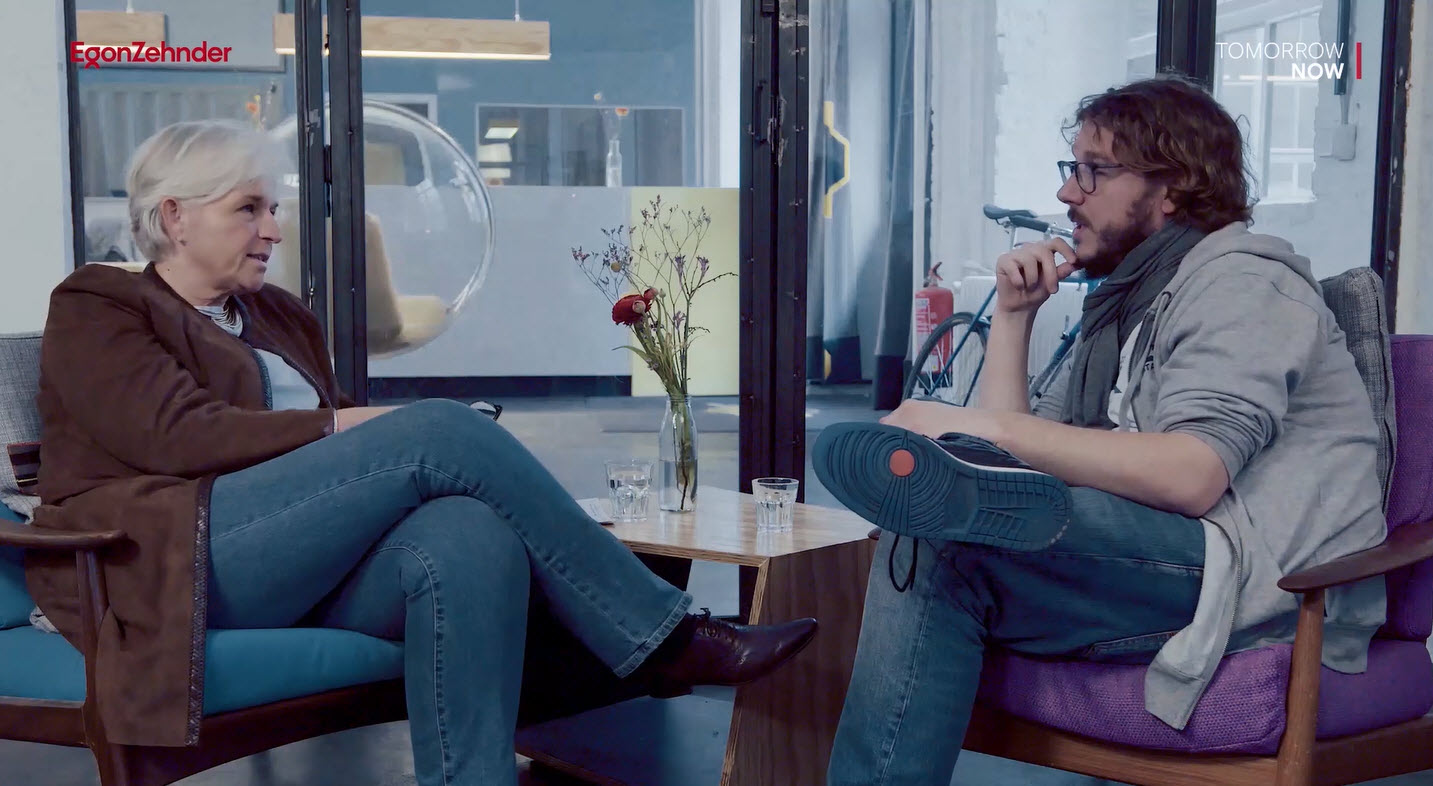
Egon Zehnder's Brigitte Lammers with Christoph Bornschein, cofounder and CEO of TLGG
The Global Perspective
The United States and Europe take different approaches in tackling digital challenges. What are the differences you are seeing, and what’s next for these regions?
We see massive competition across those regions. Obviously, the head start region is the Silicon Valley-driven approach of building digital business models. They employ the notion of fail fast and those kind of poster-boyish quotes. But it's all about executing—really quickly—and less about ideation. The United States has really won the business to consumer (B2C) platform game. However, we can also see that the American digital decade is coming to a point where it's not clear what's going to be next.
This is an opportunity for Europe—to decide if they want to apply what they’ve learned from the United States in B2B contexts into logistics and supply chain management. It's really the moment where Europe decides if it will build B2B digital capabilities and digital business models, taking what has been learned in B2C platforms and adopting it to highly regulated and more complex markets.
What is your perspective on Asia? What are they doing well, and what can other regions learn from them?
I think the only right thing to do is to paraphrase Kai-Fu Lee in his book AI Superpowers. What we're seeing is that after the age of invention of artificial intelligence, machine learning, and the like, we are now at the age of implementation. They are modeling, remodeling, tweaking business models, failing, restarting again, building 10 tools of the same kind with just slight tweaks that differ between those tools.
China in particular is impressive in the financial sector. They've got $1.4 trillion in accounts on mobile apps right now. Singapore's quite interesting if you look into smart buildings and smart cities. We see Vietnam and Thailand with their young demographics adapting to change way quicker than we do in Europe. Asia is going to be the global lab for everything that is new.
When we look at big companies, such as Alibaba or Baidu in China, how much will they impact the overall development of the country?
It comes down to values and where the society is going as a whole, and I think there's two possible ways. There is the controlled, dystopian way, where technology is going to be tools of control. Or it could be—and this is just as probable—the building blocks of prosperity for freedom and the ability for development.
In a utopian way, China could be one of the most digital countries on the planet, and the digital economy that will win in competition over all other economies. The crucial point is will they understand how to globalize their businesses?
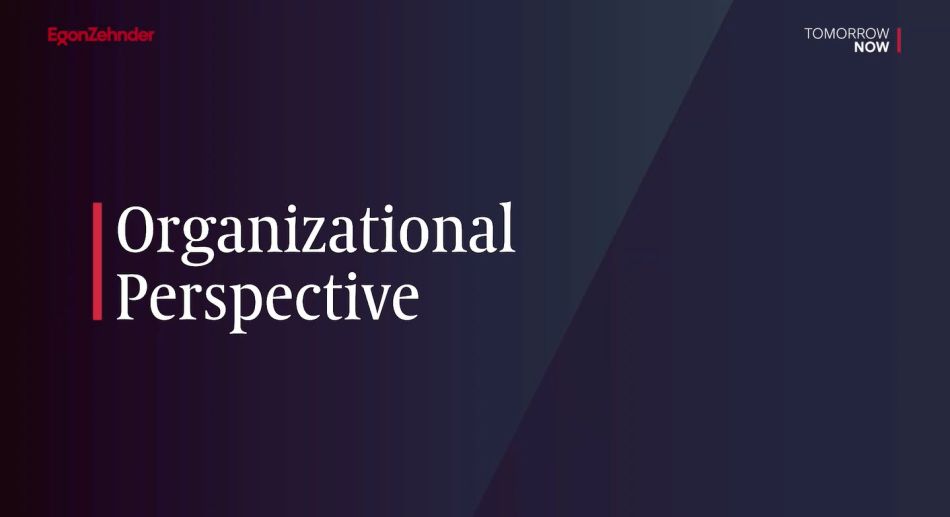
"The traditional business world and the disruptive world are equally important."
Let’s talk about Europe. Why are they the latecomers?
Let’s start with the positive news. If you look into Scandinavia, they've figured it out. But the rest of Europe is missing out on B2C platforms, and only focusing on ecommerce, pizza delivery and sales of furniture has led to a situation where we are latecomers to development.
Because the largescale wins in consumer industries have already happened, we're not competitive anymore because we didn't start early enough and we didn't invest enough capital into the buildup of those platforms. While we lost out on B2C platforms, there is an opportunity now in B2B manufacturing. How is machine-to-machine communication going to play out? This is what European economies need to focus on because we have deep-rooted manufacturing hardware-focused industries that are now mature enough to start to understand what digital means for them.
What needs to happen in Europe to preserve some competitive advantage in light of global developments?
First, we need to create a single market with coherent and consistent regulation on how to build European business models and scale them in Europe. Second, we need to support companies with sufficient capital access, and we need to fund taking risks. Then there is values. What we're now seeing in the discussion about Facebook and what we've seen about Cambridge Analytica is that there is a mistrust of about how they use data or that do not explain how they will move onto an ethical path. The deeply rooted European values built into software can be competitive. We need to find an edge where this can be the case.
Driving Digital Transformation
Is there a golden rule for how companies need to tackle digital challenges?
When it comes to understanding digital from an organizational perspective, you need a twofold approach. You need a clear and dedicated top-down leadership, and you need clear, willing and fully accountable execution from the bottom-up. It really boils down to:
-
Is the top management onboard?
-
Are they giving clear signs and clear direction?
-
Do you have an executional force that is dedicated to that topic freed from control and fully accountable for what they're doing and capable of doing what they're doing?
What are the big streams of digital transformation that every company needs to tackle, no matter what kind of business model they have?
It's three main buckets: automation, new business models, capabilities. For automation, you want to have more agile, more flexible and more efficient processes that are highly automated. The other bucket is true differentiation when it comes down to recreating and recombining value chains. This is where you build new business models on top of data that you have to unlock in the automation world. The final bucket is capability. On one side is talent—it is about human beings. It is also about the machines of the digital age. It's access to assets and new forms of collaboration.
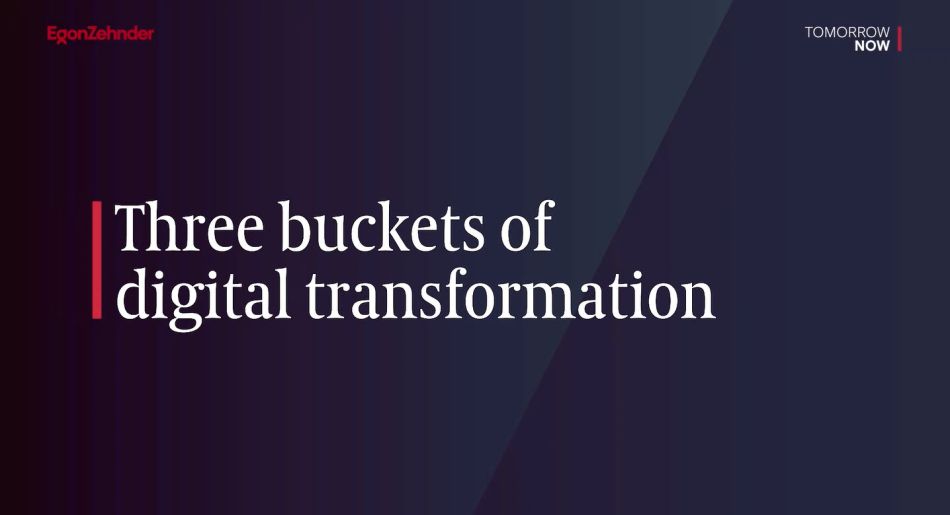
"Automate, rebuild your business model, and find the right capabilities."
What's the next big thing that we will see in driving digital transformation and defining the next big wave in the digital age?
Business model-wise, it is now the time of the industry and B2B. We'll see incredible things happening on shop floors and in human-computer interaction and cooperation. We'll see the supply chain changing and automating. But what is more important is the operating system of where this all comes from. The next wave is updating the operating system into a bets-driven hybrid organization.
We'll see solving for the right leader who is capable of managing a portfolio of bets rather than just one close-down value chain. That is really going to be interesting—how we update the operating system of the economy and even of society.
How do you preserve traditional types of businesses while building a digital arm and ensure that both are well led?
Finding a means of communication to support both sides is always what I found great leadership to be. Telling people that something really new that is outside of their control is part of their job and part of their mission as well as having clear leadership and clear communication about this is the key to having consistency in how you organize your operation. You create the feeling that we're one team that is part of the same mission, even though you do different things.
What kind of communication style is required for leaders to support transformative changes?
I see collaboration, knowledge management and communication being tightly connected. The IPO of Slack is a part of that because it's the tool that helps network communication that contributes to dialogues that at some point used to be top management dialogues. The visibility and consistency of communication is important, as is transparency.
When you are trying to be part of a hybrid business model, people in the traditional part of the business sometimes feel they are being left back, while on the digital side, they are the cool kids. Is that the look and feel of a modern hybrid organization in digital times?
I don't think so. I think it is the status that we are in right now. But where this is leading to, which is a problem, is an opt-out culture in the traditional part of the business. We hear of people working in the traditional part of businesses in those hybrid organizations say, “OK, I calculated that I'll be retired within five years. I don't need to change anything.” That is how you lose talent and have people opt out from the mission. Great leaders in this time are leaders who are capable of creating that feeling across the whole workforce.
Updating the Workforce of Today for Tomorrow
A CEO told me the other day that he always puts the best talent in the company in the traditional part of the business. Does that work?
It's great from a symbolic perspective—you'll not be left behind. Pulling everything out of the traditional organization and telling them process optimization is going to be what you'll be doing for the next five years is just the wrong sign. But my feeling is you need to balance that with up-and-coming talent.
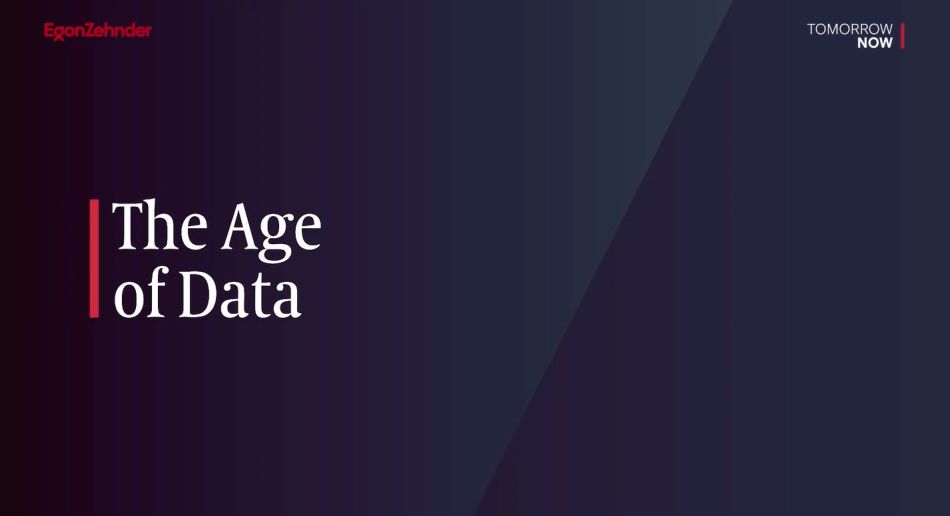
"You have to enrich your propriety data and connect it to external data to find your competitive advantage."
Companies are always seeking modern leaders with a true digital spike, and there is an assumption that you can find these people in organizations like Google, Facebook, Amazon, and the like. Is that accurate?
Google, Facebook, Amazon as part of your CV may seem interesting, but across the globe, most of their organizations are sales organizations, so what you will get is people that operate in sales organizations. To be a digital leader, it's not sufficient to have worked at Facebook. It proves that you are able to go through 30 interviews and be smart about that, but it's not the defining criteria of digital capability.
For me, looking into the fashion world or the retail world, where we see the change happen the quickest, the question always would be, “What did successful start-ups really understand about how logistics support a business model that tapped into new grounds in my industry? And how do I can get ahold of those people that really build new capabilities?”
How do we update the workforce we have today for tomorrow?
What we see happening right now is corporate retraining and being in a place or being sent into place. But what companies are actually doing is substituting something that society should do. The whole concept of learning needs to change. My take is that none of the jobs we have here in two years’ time are going to be the same. That means rebuilding our societies, rebuilding corporations to allow people to have time for retraining and to allow concession models to have times of training and not working.
Are there some examples of organizations that are doing this well or taking the right steps toward changing learning mindsets?
We're still in the phase of awareness creation. So with the folks at Cologne University, I had an interesting discussion about creating a lifelong subscription for a university to allow you to get back to university whenever you feel that you need to be updated. In Austria, you get tax deduction for half time that you take part education. Also, corporate universities are popping up, corporate blended learning programs.
It's our belief that there is not one leader who can drive digital transformation—you need to make sure that you have high-functioning teams. What's your experience in creating these teams?
It’s about creating diversity, not just understood in the binary male/female quota diversity, but from a neuro-diverse perspective. What we're trying to do is stress teams. If we have the feeling that a team is not diverse enough anymore, perhaps because everyone was onboarded in the same way, we stress teams with a new candidate who is totally different.
What we learned is that, after the first time of navigating how it works, those teams tend to be more successful than teams that remain less diverse.
Watch the full video interview below.
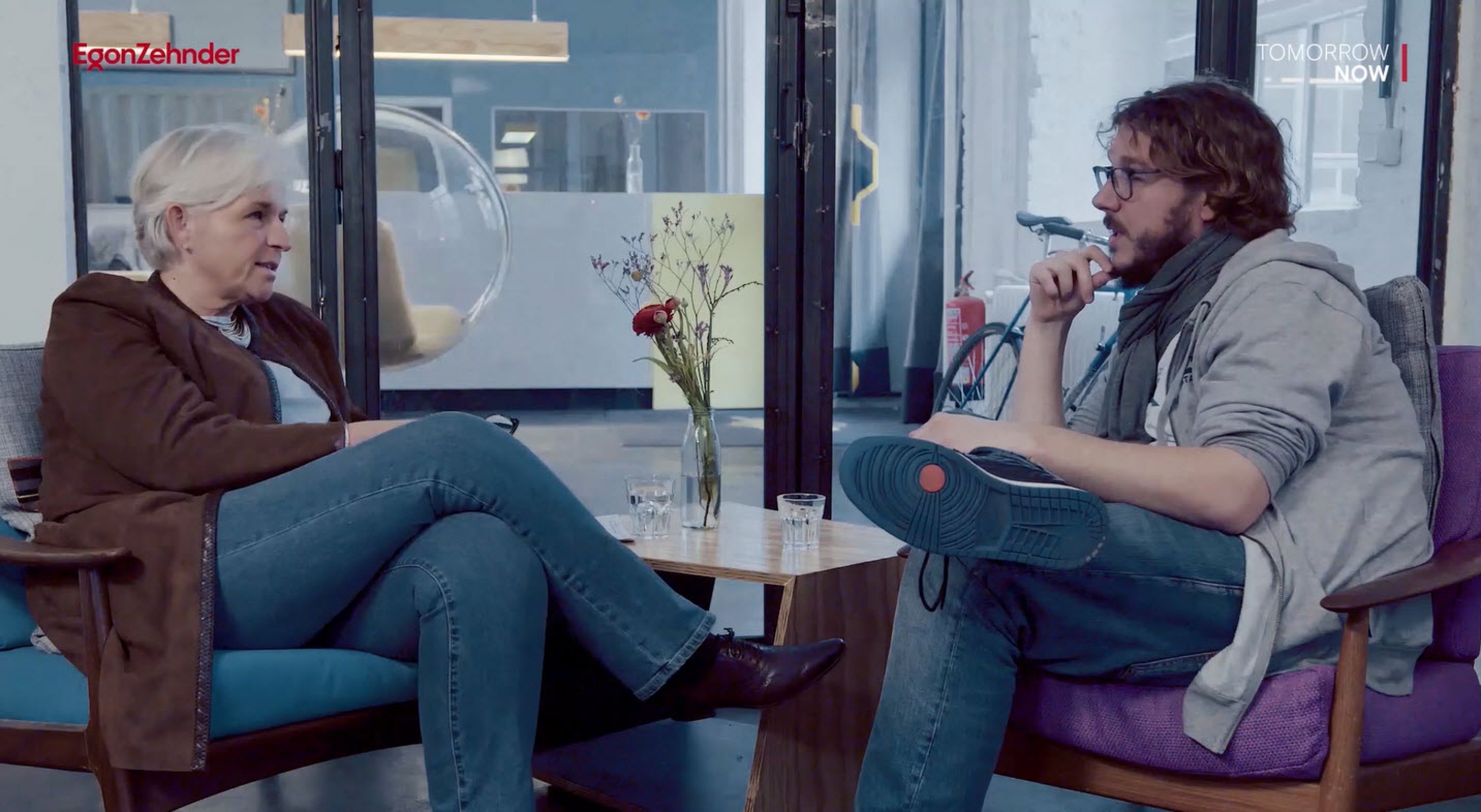
Topics Related to this Article
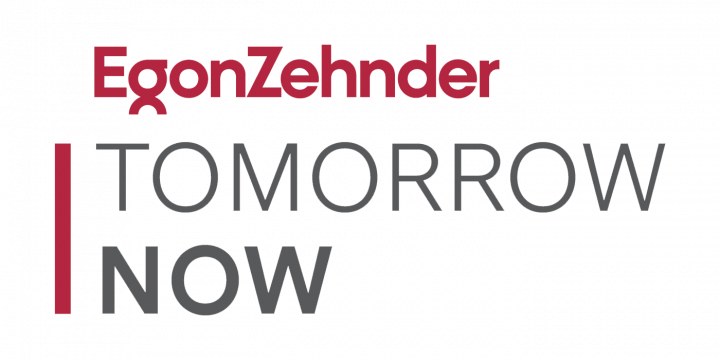
What Leaders Need to Know Today to Create a Better World Tomorrow





